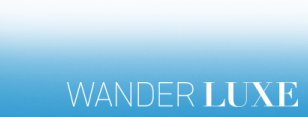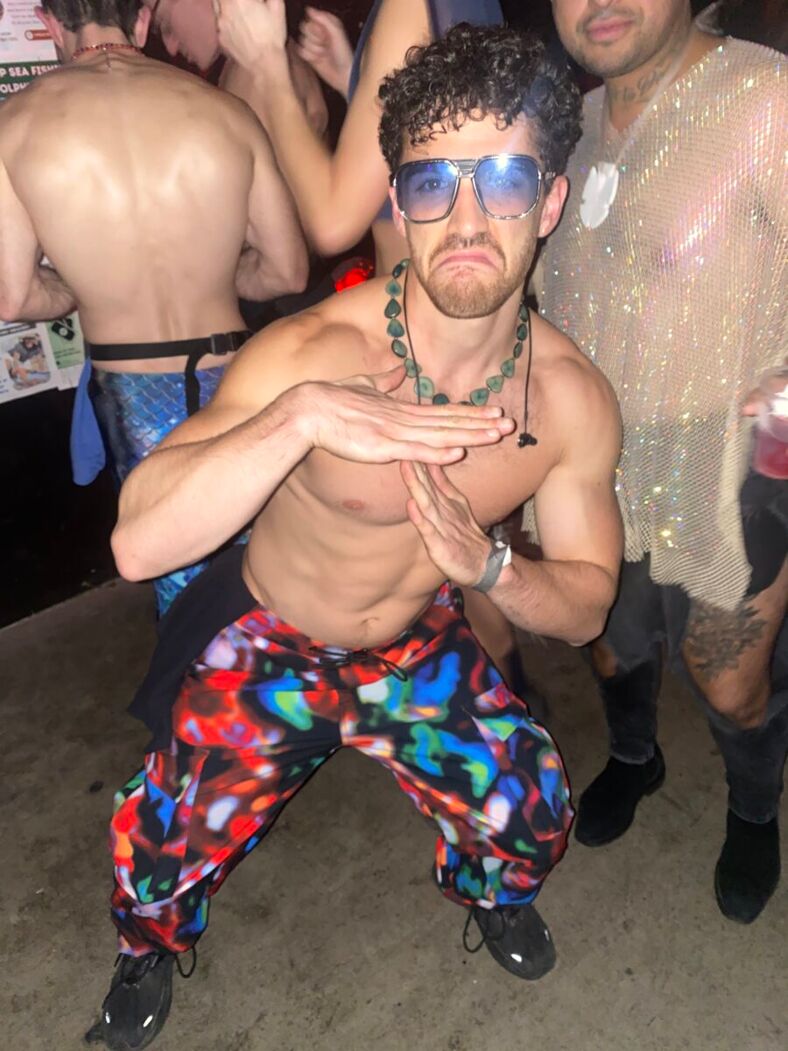
Los Angeles is notorious for taking itself too seriously. Many of its queer parties are populated with image-conscious aspiring influencers who are more concerned with exuding calculated coolness than with actually enjoying the evening. Fortunately, MILLK aspires to combat this pretension with radically expressive absurdity.
Founded by long-time nightlife notable Patrick Millk, this quarterly cavalcade of queer irreverence serves as DTLA’s Island of Misfit Toys. Patrick and his team, which consists of Jake Thomson, Taylor Stayton, Gareth Berrow, and Rebecca Campione, pride themselves on showcasing absurdist art, fearless fashion, and cutting-edge music. The diversity of its party themes, encompassing the disparate concepts of public transportation, high school detention, and the state of Alaska, embraces the illogical nature of this surreal warehouse experience.
Most recently, MILLK celebrated its first anniversary with a seafood-themed soiree that attracted neon krill fish, salty superheroes, hunky himbos, and sushi rolls with six-packs. To commemorate one year of weirdness, we sat down with Patrick Millk to kiki about the origins of his party, its challenges, and the importance of keeping LA queer nightlife stupid.
GayCities: So Patrick, for our readers who have never been to a MILLK party, how would you describe it?
Patrick Millk: It is an intentionally stupid, immersive, queer art and music experience for hot weirdos.
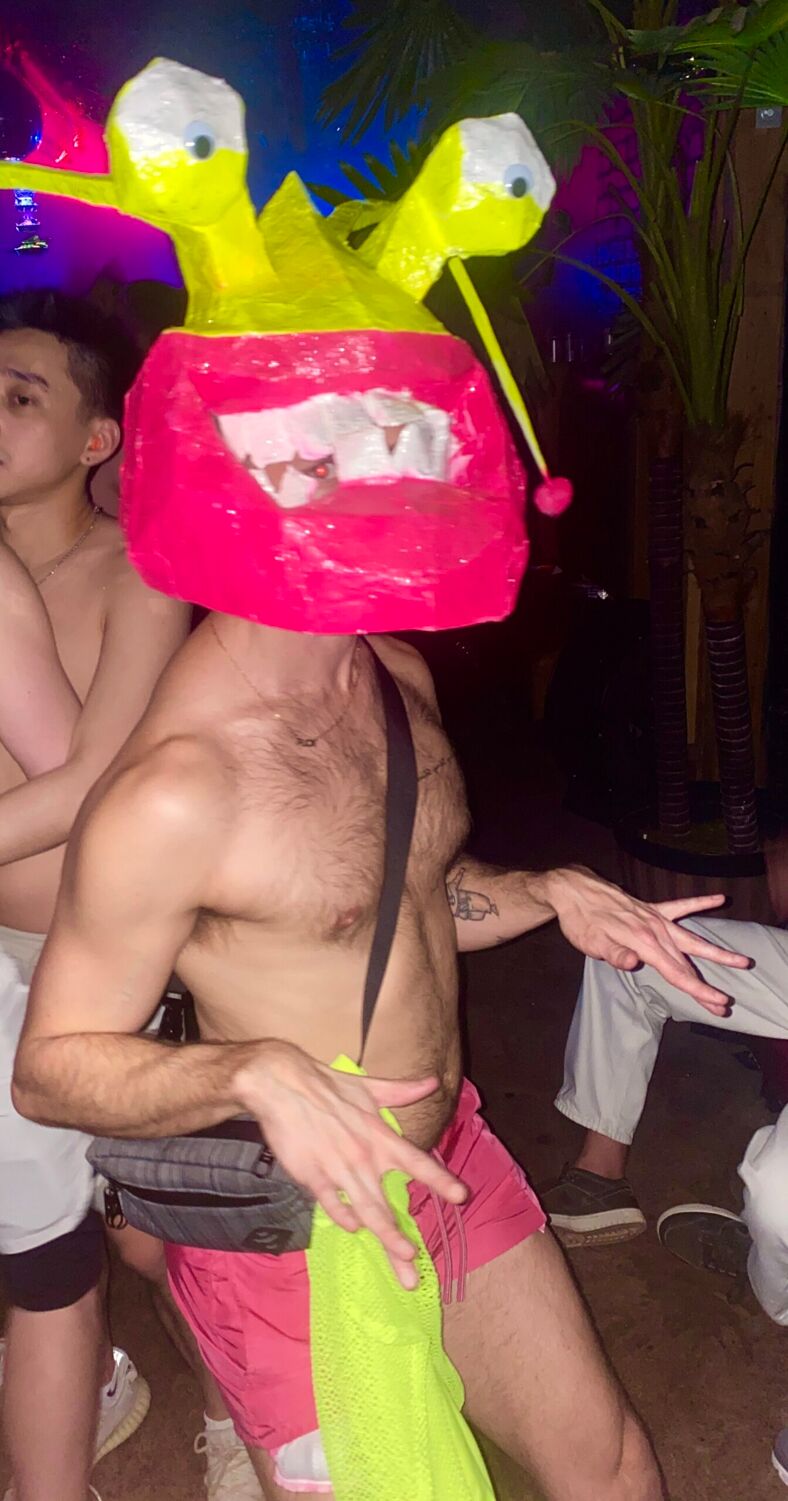
What motivated you to create this party series?
I worked in nightlife for a long time now. I’ve been a barback, a bartender, a promoter, a go-go dancer, a manager, you name it. And on top of that, I’ve worked a couple of side jobs in set production for World of Wonder. I work in two wood shops right now, I do art and custom furniture. I started playing piano when I was four. So I have all these aspects of arts and music and nightlife, and really wanted to work in this environment. I’ve had these ideas for how I would want to do nightlife and how I would want to do a warehouse party and what I want to see done in the queer community. So I just decided to give myself the green light last year, rather than wait for someone else.
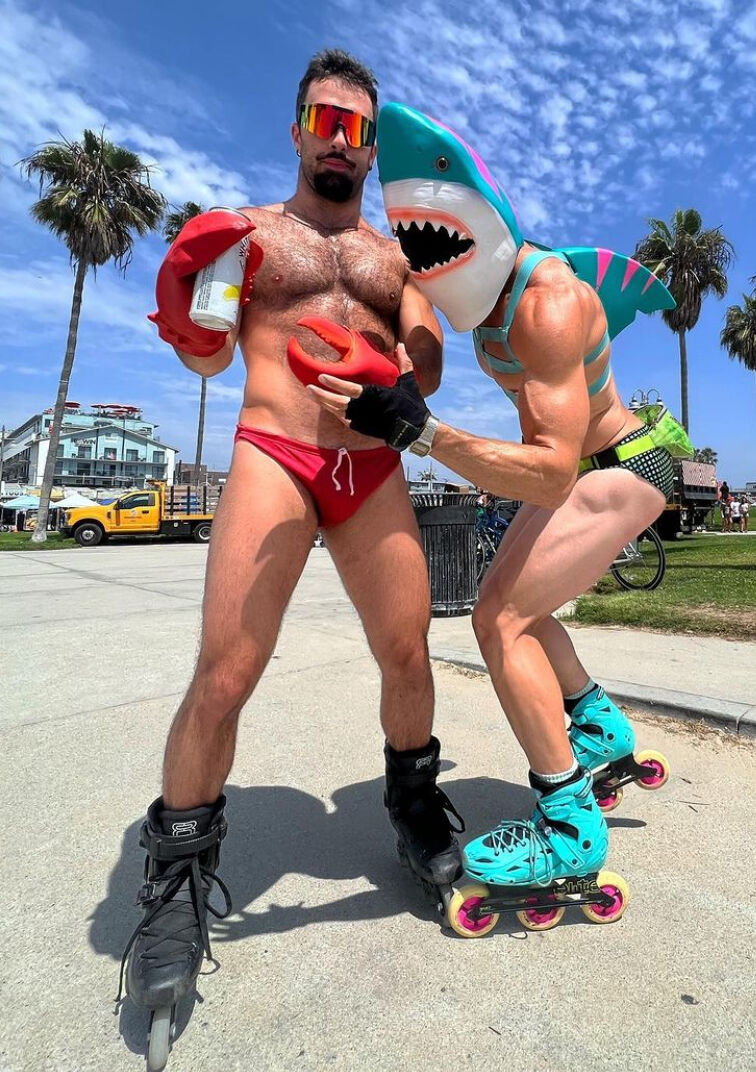
In what ways do you feel MILLK is filling a necessary niche in LA queer nightlife?
I think people take themselves too seriously. And I think that it’s not just Los Angeles either. I think that LA is a good example of a city in which people take themselves very seriously in the way that they’re viewed in terms of like, ‘Am I cool enough? Am I hot enough? Am I any of those things?’ But again, that exists everywhere in all queer spaces nowadays. I really wanted to show people that we’re not leaving the comfort of our own apartments to feel like we’re being judged by our peers and stuff. We’re leaving the house to enjoy ourselves and to have positive experiences.
So I wanted to remind people that at the end of the day, you don’t need to take yourself too seriously. Life itself is absurd by nature. I really wanted to lean into those aspects and create these themed parties, in which the themes are so outlandish and stupid that the moment that you get there you kind of have no choice but to realize, ‘Oh, they’re not taking themselves seriously, so I don’t have to either. I don’t have to be concerned about how I’m perceived, because I’m surrounded by people dressed as lobsters and shrimp, and wow, the music’s really good, I can just have fun.’
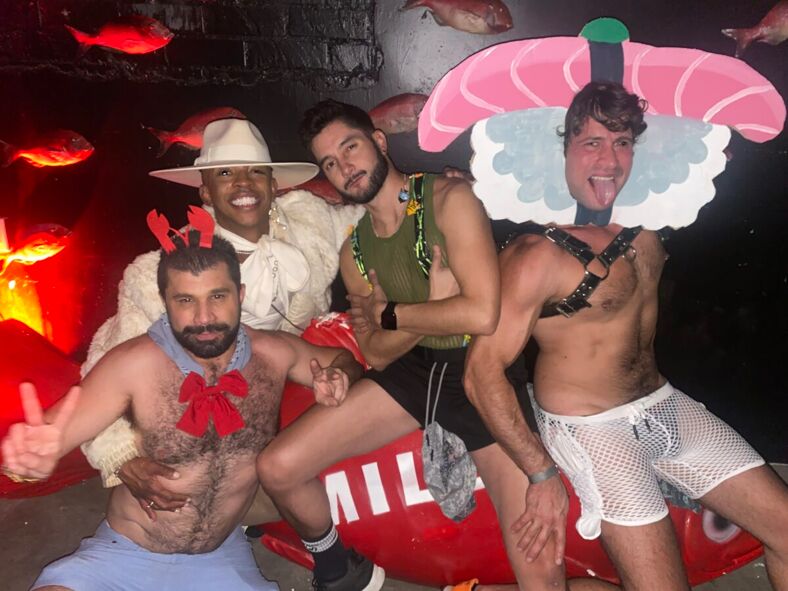
Why do you feel it’s so important for gay nightlife to have that sort of irreverence?
Well, I think one aspect is that we’re queer people and we’re naturally more creative than straight people. So we can hold ourselves to a higher standard. I want the creativity aspect, and that’s to be held to a high degree, even for something stupid and absurd. I think that it can send ripple effects that are inspiring for other people to want to pursue creative projects and do things like that.
And secondly, gay and queer people need safe spaces to feel comfortable as the people that we are. The number of times I’ve entered a gay or queer space, and felt the pressures in judgment of the people around me, is so numerous that I felt like we were kind of losing track of why we created spaces in the first place. Not to make people feel uncomfortable and profit off of them, but to make us feel safe, and allow us to express ourselves in the fullest way that we can.
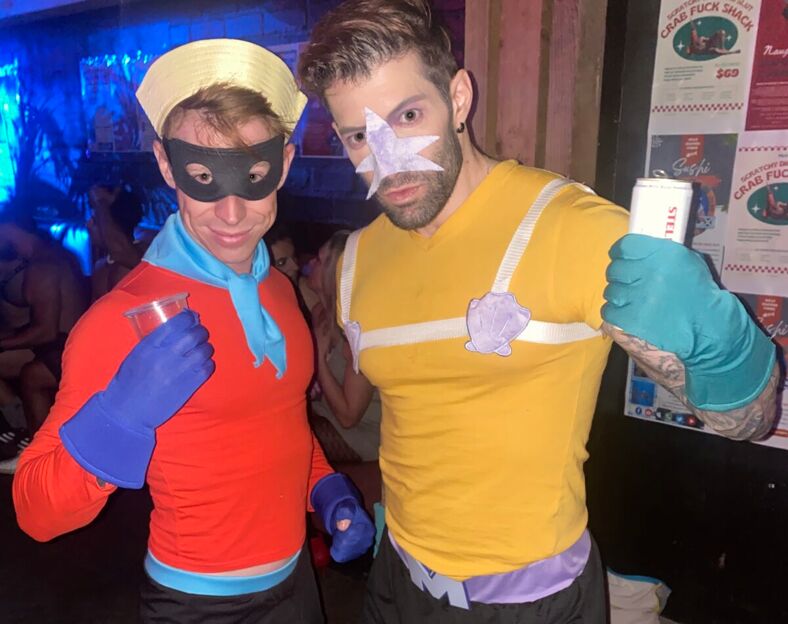
Related:
Is MILLK a quintessentially Los Angeles party?
I actually don’t think it’s conventionally LA. I think it’s the opposite of LA. I think that’s almost why it works. So well. It’s the counterculture of people in Hollywood and all these people being very serious. And this is the opposite end of the spectrum. And I think there are enough creative people here who feel those pressures and don’t necessarily adhere to them that it gives an opportunity for a release.
If there is one statement you would like MILLK to make, what would it be?
I guess what I would say is, turn the stupid all the way up. Every time I’m thinking of design elements for this party, I’m always asking myself, ‘How can I do something that’s so absurd and ridiculous that people have no choice but to talk about it?’
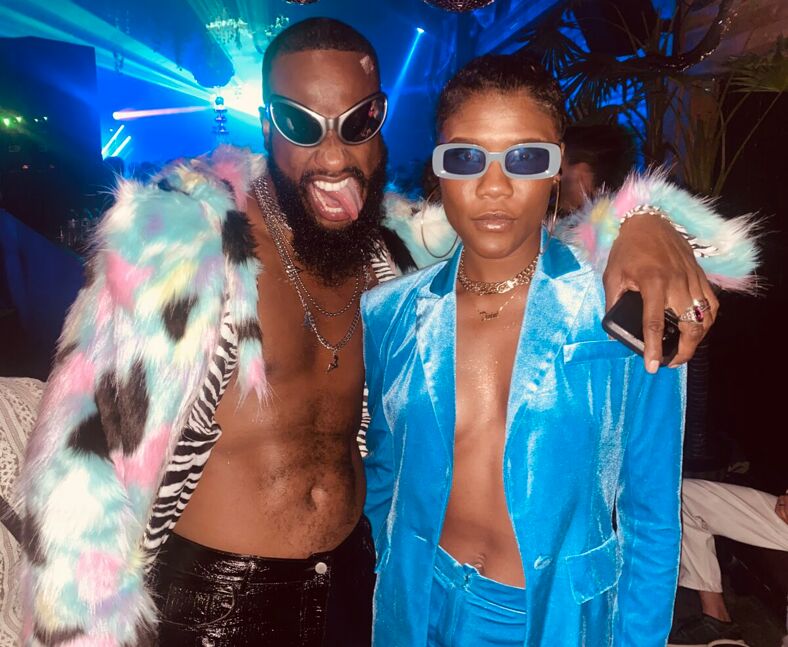
What do you feel the biggest challenge is throwing a party like MILLK?
Starting off, the biggest challenge was just convincing people. When you’re starting a new party that no one’s done and you try and describe something to them, like an experience that hasn’t happened yet, it’s almost like how I imagine people who have to make perfume commercials struggle. It’s like, how do I sell something that doesn’t exist and can’t really be described yet? So I think that’s the first hurdle, convincing people to just get in the door.
And then trying to not plan on a day when everyone’s going to be out of town. Because you need the people there to make the full experience. Because it’s one thing to have a creative idea and a vision, but without the people there experiencing it as well, like spending time creating outfits, you’re giving 50% of the whole piece. The experience is the people there, and their reactions are part of the artistic experience.
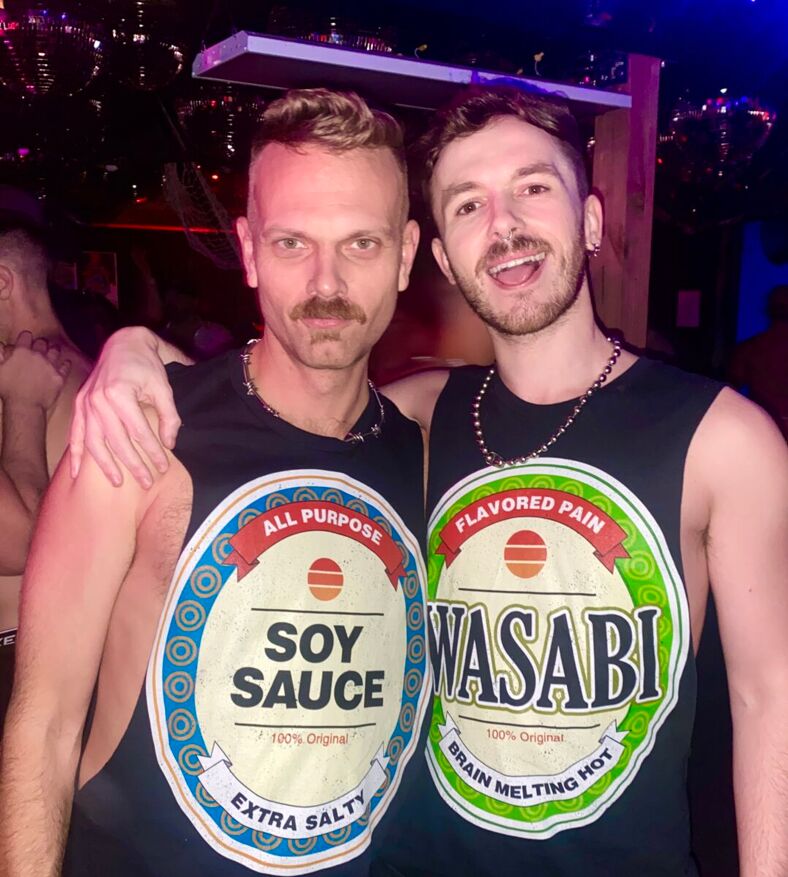
Let’s talk about the themes. They’re pretty disparate. You had seafood, Alaska, detention, and public transportation. Where did the themes come from?
The world around me. I tend to see the natural absurdity in what’s around me A lot of these things are just things that I develop little obsessions over and I can see in my head and envision like, ‘Damn, how cool would it be to rave at a seafood market?’ And I think about the visual aspects of them, and also just the stupidity of it. Like it’s ridiculous. No one’s ever done that before. It would look really, really funny. Also, if you were looking at the DJ booth, and in between you and them was a full fish display, it’s almost as if the DJs themselves were the fishmongers.
In what direction do you see milk going in the future?
Girl, I have no idea. I have no roadmap, but I’m going to continue doing what I’ve been setting out to do which is create positive memories for my friends and my community and provide opportunities for all the artists and musician friends that I have.
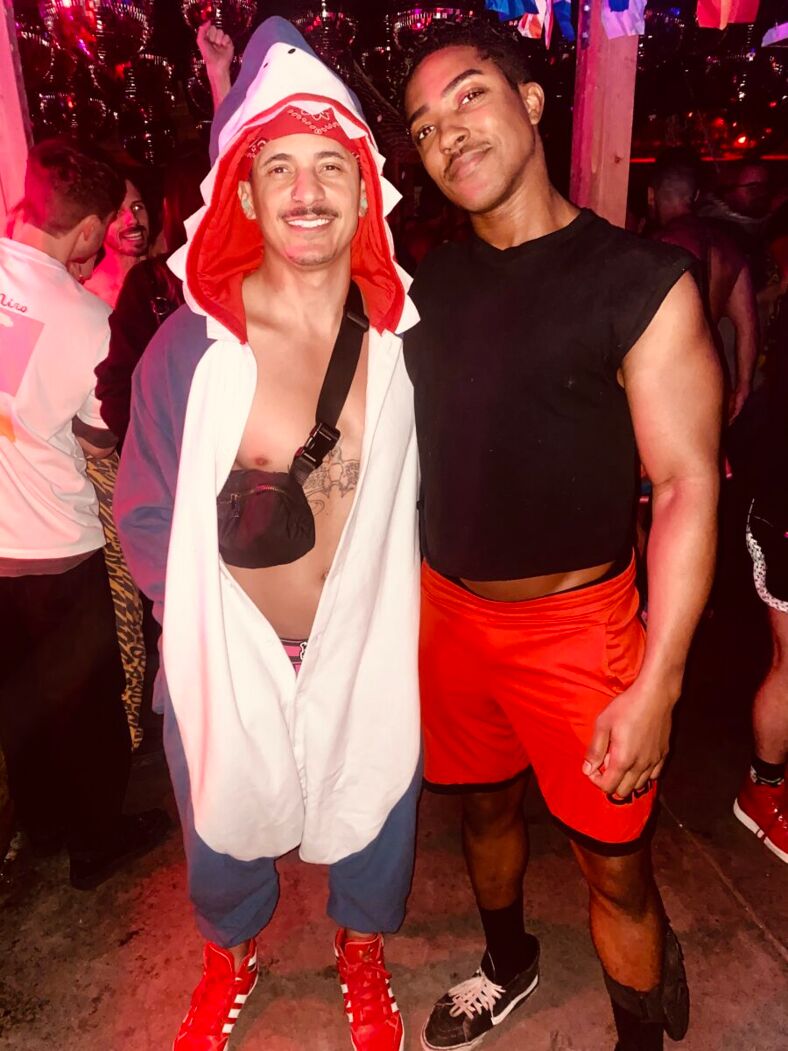
For those of you who missed the MILLK anniversary party, we’ve captured images of our favorite hot weirdos. Bon appetite.




















